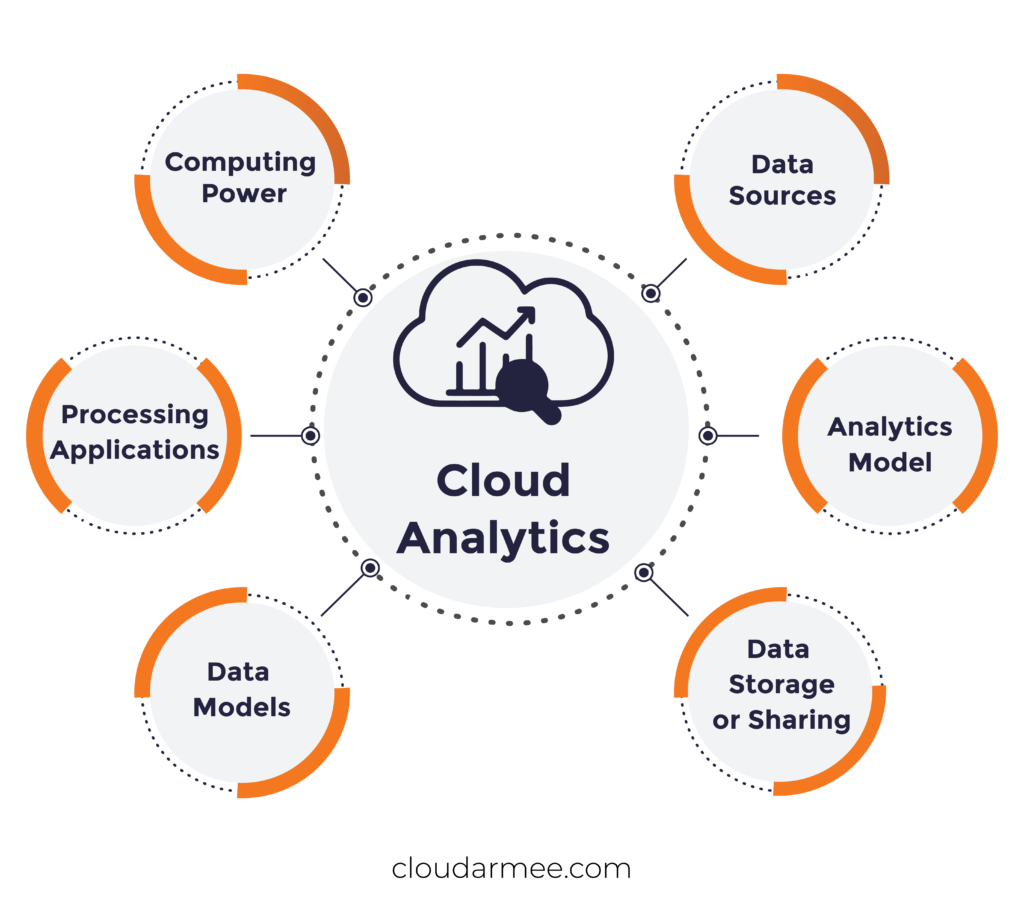Worldwide data is expected to grow 61% to 175 zettabytes by 2025. The convergence of Artificial Intelligence (AI) and cloud computing has ushered in a new era of possibilities, transforming the way businesses analyze and derive insights from their data. The convergence of AI and data analytics in the cloud has given rise to innovative solutions that not only streamline processes but also unlock unprecedented levels of efficiency and intelligence.

Data analytics in the cloud involves the processing and examination of data within the cloud rather than on a local, on-premises business system. Hosting analytics systems in the cloud empowers users to access, aggregate, analyze, and leverage data seamlessly. These platforms enable users to efficiently work with extensive data sets, identify trends, and highlight areas for improvement throughout the organization.
While a spreadsheet program on your laptop or on-premises analytics might suffice for a limited number of data points, individuals dealing with intricate data sets comprising tens of thousands to millions of inputs may encounter limitations with such programs. Through cloud analytics, top cloud providers offer a solution which allows companies to handle large data sets in a scalable and cost-effective manner, eliminating the need to establish on-site infrastructure for the processing task. This underscores the advantages of harnessing the cloud’s power for fulfilling your data analytics requirements.
AI has a significant influence on organizational operations. The capabilities of AI provide the opportunity to rethink tasks, methodologies, and target audiences. Numerous companies find themselves on the verge of employing AI to address tangible business challenges, with the key requirement being the activation of their data.
In today’s data-driven world, cloud computing handles vast amounts of data regularly. Managing these extensive data repositories and the entire cloud storage infrastructure is a formidable task. Cloud service providers integrate AI to alleviate their workload. Incorporating Artificial Intelligence into the cloud framework automates redundant tasks, identifies, sorts, and indexes various data types, manages cloud data transactions, identifies faults in the cloud infrastructure, and streamlines the entire data management process.
Given that data is crucial for a business’s sustenance, ensuring its safety is imperative in the context of cloud computing, which processes massive data volumes. AI-powered network security tools implement security protocols on the cloud infrastructure, addressing potential data leaks, eliminating security loopholes, and preventing data theft or corruption. This reinforces data security measures and safeguards sensitive information effectively.
As we navigate the complexities of the digital age, the fusion of AI and data analytics in the cloud emerges as a catalyst for innovation and efficiency. From streamlined data management to real-time decision-making, the synergies between AI and the cloud are reshaping the landscape of data analytics. Businesses that embrace this transformative partnership are not only future-proofing their operations but are also gaining a competitive edge in the data-driven economy. As AWS-competent cloud consultants, CloudArmee helps your business triumph by incorporating the power of AI in your cloud.